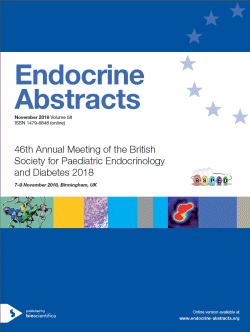Searchable abstracts of presentations at key conferences in endocrinology

46th Meeting of the British Society for Paediatric Endocrinology and Diabetes
Birmingham,
UK
07 Nov 2018 - 09 Nov 2018

Birmingham, UK - 7-9 November 2018



